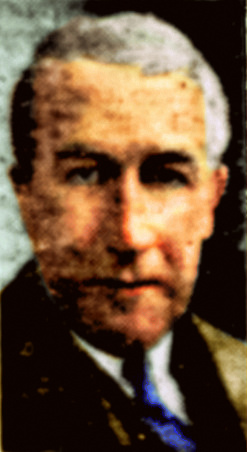

Simms: Record belies charge GOP is isolationist
Until 1919, the term applied to Democrats
By William Philip Simms, Scripps-Howard staff writer
Washington –
After Governor Thomas E. Dewey’s criticism against the proposition of having the Big Four lay down the law and forcing the rest of the world to live up to it, it seems certain that foreign policy will become an issue in the presidential campaign.
Already, Democrats are saying the Governor’s remarks sounded like the Republican “theme songs of isolation.” But before the broad charge of “isolationism” is made against the GOP, a glance at the record might cause the Democrats to pause.
It was under William McKinley, a Republican President, that we acquired Hawaii. Under him we also took the Philippines, Guam, Puerto Rico and Samoa.
Viewed with alarm
The Democratic platform of 1900 viewed all this with alarm saying: “No nation can long endure, half republican and half empire.”
This week, the Democratic side of the Senate parceled out islands all over the Atlantic, Pacific and Caribbean which it said we must now have for our security.
In 1904, under President Theodore Roosevelt, we came into possession of the Panama Canal. That year the Democratic platform set its “face sternly against executive usurpation of legislative and judicial functions whether that usurpation be unveiled under the guides of executive construction of existing laws, or whether it take refuge in the tyrant’s plea of necessity or superior wisdom.”
Endorsed Hague Conventions
The Hague Conventions, forerunner of the League of Nations, international arbitration machinery for disputes and war outlawry, were formed in 1899 and 1907, with American help, during the administrations of Mr. McKinley and Theodore Roosevelt.
President Howard Taft (1908) was one of the chief promoters of the League to Enforce Peace. He negotiated arbitration treaties with Britain and France, backed a world court or high commission to which controversies between nations must be submitted. Elihu Root, Henry L. Stimson and other Republican leaders supported these and similar measures calling for international cooperation.
GOP isolationist in 1919
A comparison of the records pretty clearly indicates that the Republican Party, by and large, has been more international-minded than the Democratic Party. The GOP became identified with “isolation” almost entirely during the years of Warren G. Harding and Calvin Coolidge, in fact largely as a result of the fight against the League of Nations in 1919-20.
Even there, the record reveals that we would have entered the League had President Woodrow Wilson been willing to accept the reservations of Senator Cabot Lodge.
And yet the Democratic platform of 1924, while backing the League, stipulated that America should enter only after a national referendum and then subject to “such reservations or amendments as the President and Senate may agree upon.” The 1928 and subsequent Democratic platforms forgot the League, even those on which Franklin D. Roosevelt based his candidacy.